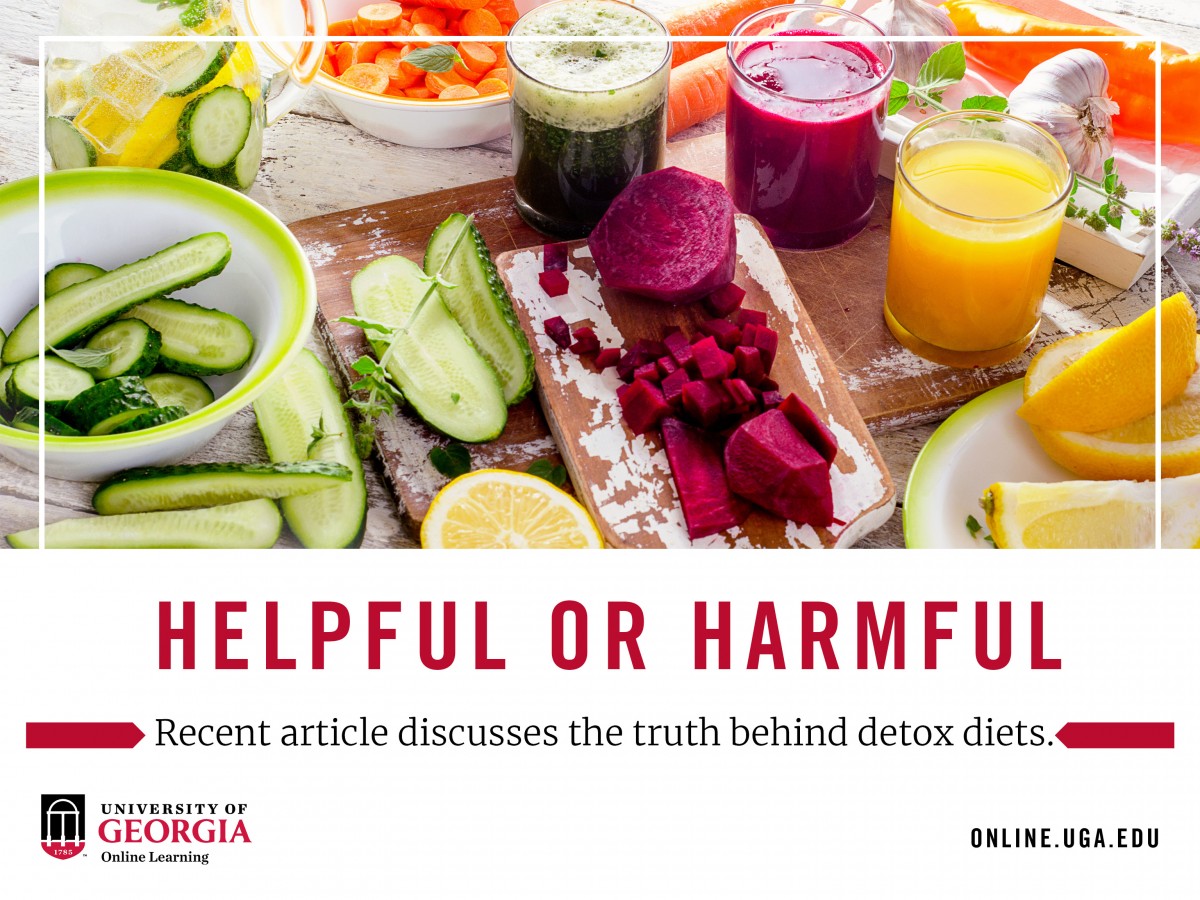Detox Diets: Helpful or Harmful?
Detox Diets: Helpful or Harmful?
On the top of many people’s New Year resolutions list is a type of detox diet—the focus being on cleansing your body by only consuming juices and laxatives.
 In an Inverse article, Emma Laing, UGA online professor in M.S. Foods and Nutrition and director of dietetics, combats the trend of detoxes.
In an Inverse article, Emma Laing, UGA online professor in M.S. Foods and Nutrition and director of dietetics, combats the trend of detoxes.
The popularity of detox diets rise “because people are attracted to the idea of a quick fix to improve health,” Laing says.
The body has toxins that are produced internally (like lactic acid and waste products from gut microbes) and externally (like lead from air pollution and chemicals in tobacco).
If there’s a build-up of these toxins and the body can’t excrete them fast enough, then they can be harmful to health.
A healthier way to detoxify your body would be through consuming large amounts of water, hitting your necessary fiber intake and eating a variety of fruits, vegetables and healthy carbs.
When it comes to going with a detoxification program, compared to supporting the body’s natural detoxification system, the issue isn’t only that one won’t help you be healthy while the other one will. Instead, extreme consequences can accompany the more extreme detox diets.
Laing explains that these can include an increase in food cravings, feelings of sluggishness from not meeting your caloric or fluid needs, and a reduced ability to exercise. The detox diets that include herbal supplements can lead to adverse food and medication interactions. Also while using products that contain diuretics or laxatives can result in lost water weight, however the loss is just temporary.
Laing advises that, before someone chooses a detox diet, they should ask themselves questions including: Will this diet negatively affect my finances and my mental and physical health? Will I need to go on a detox diet repeatedly once I start eating as I usually do?
